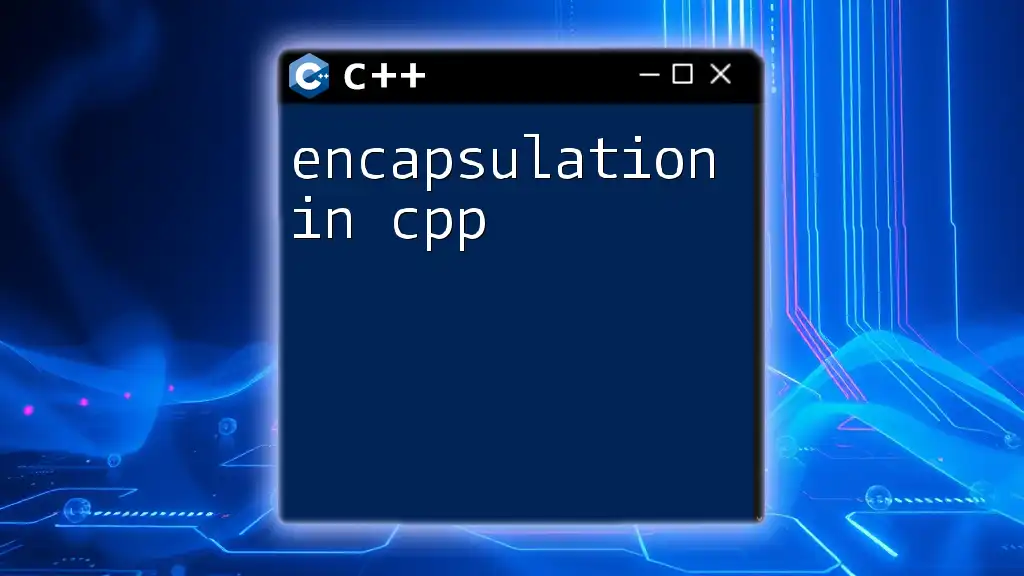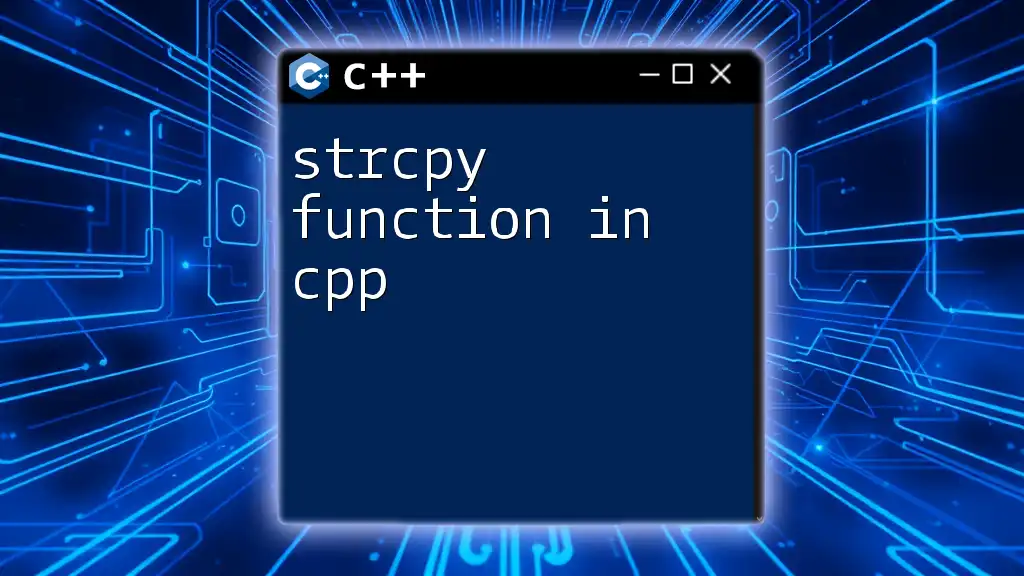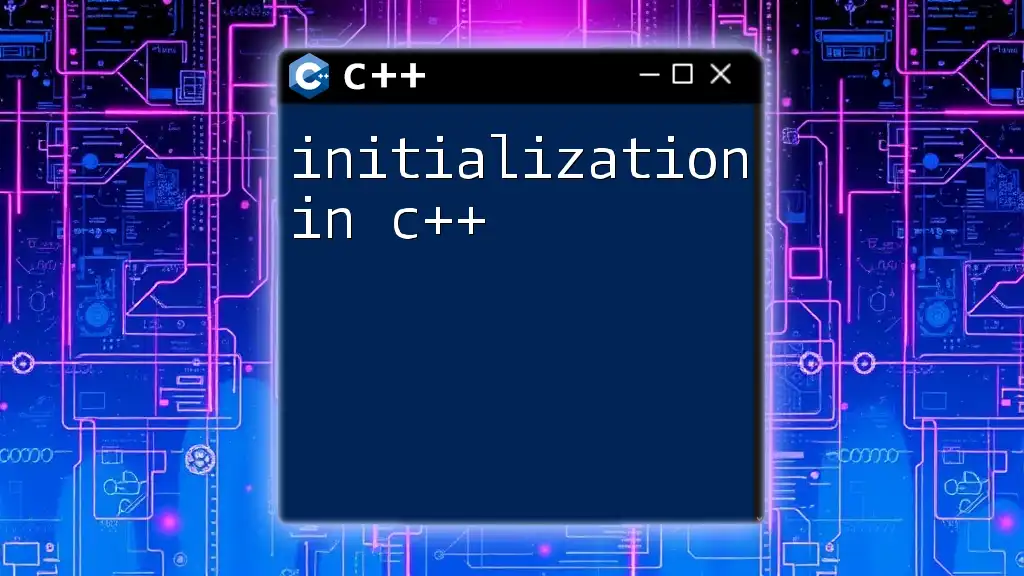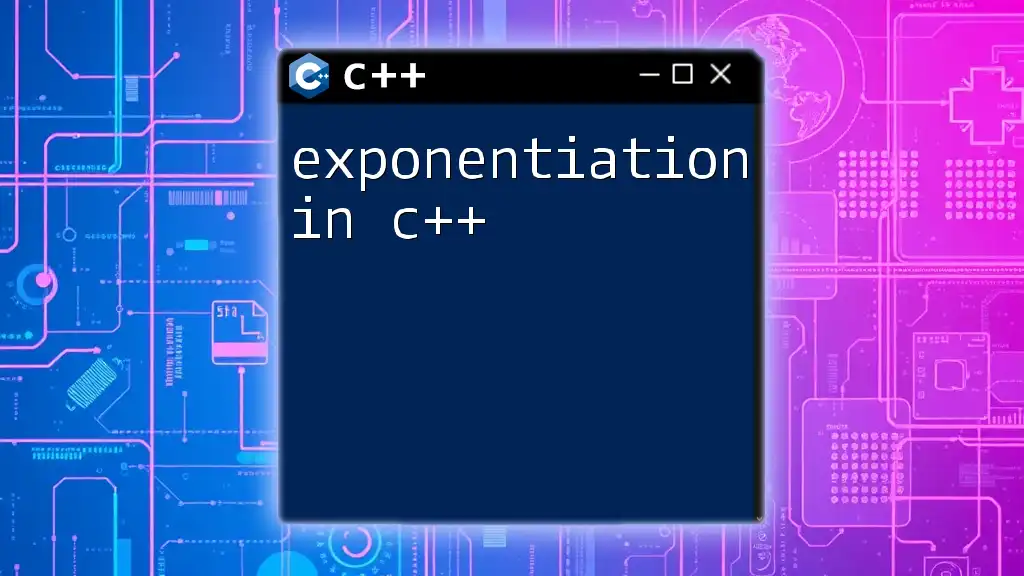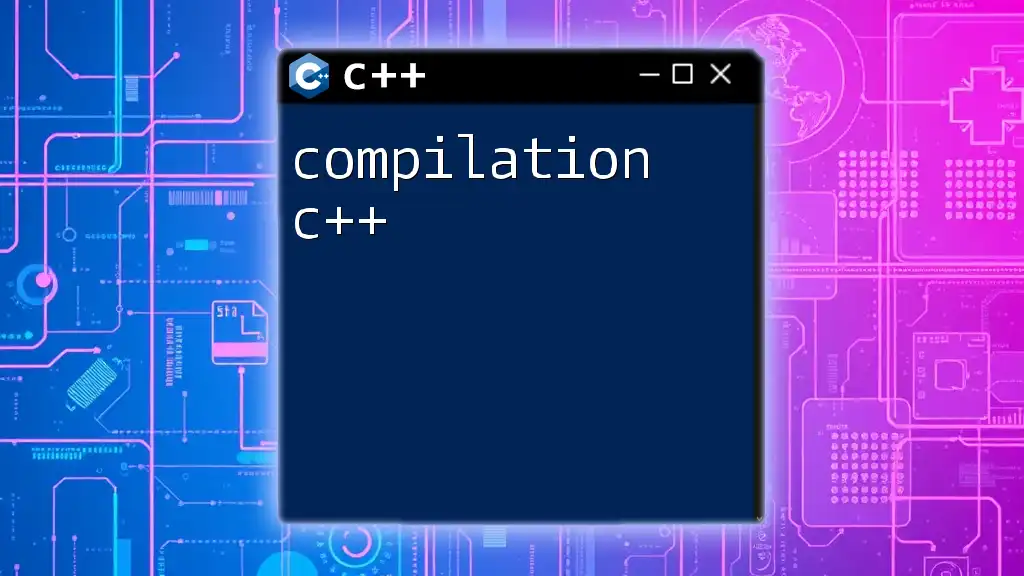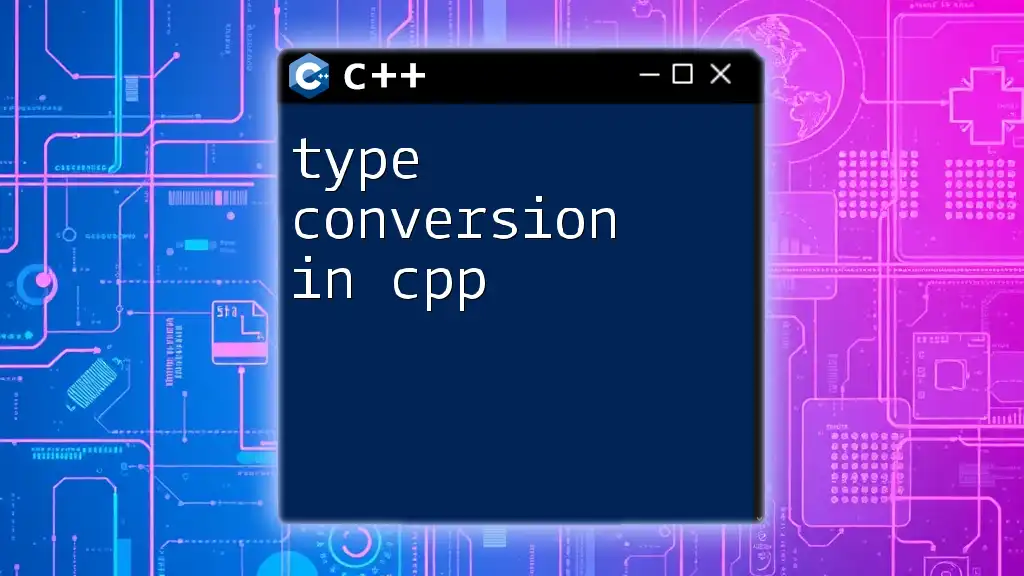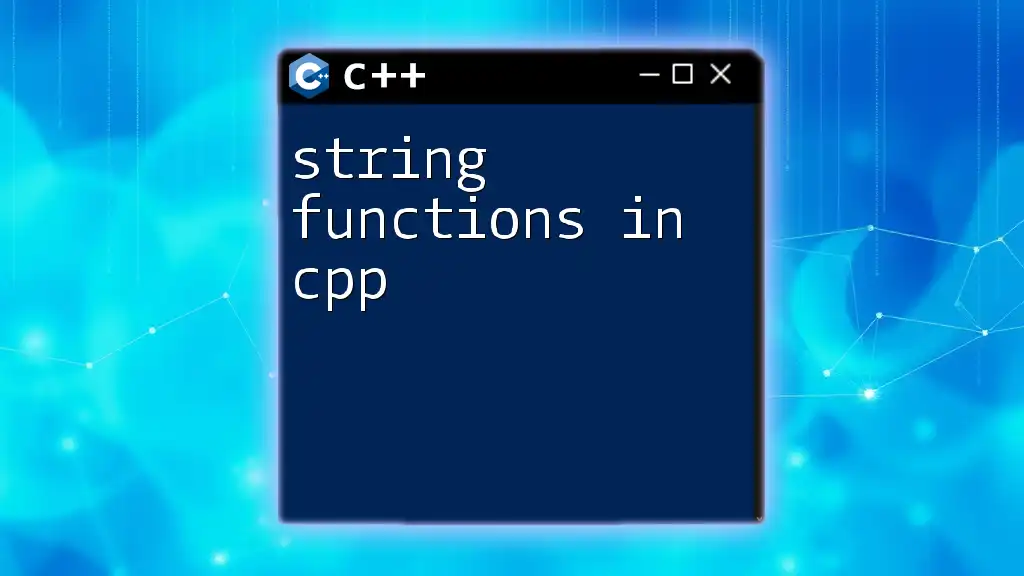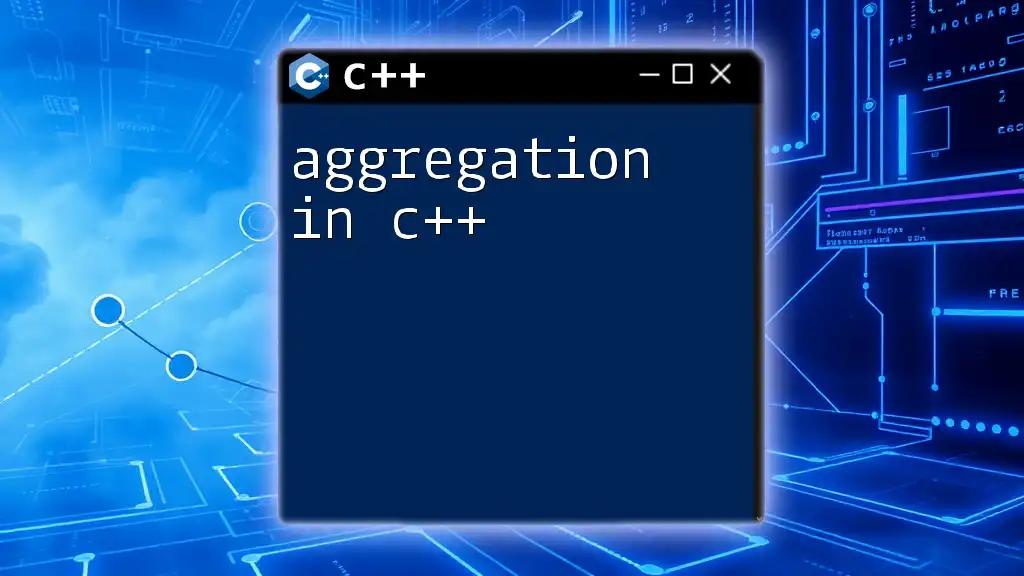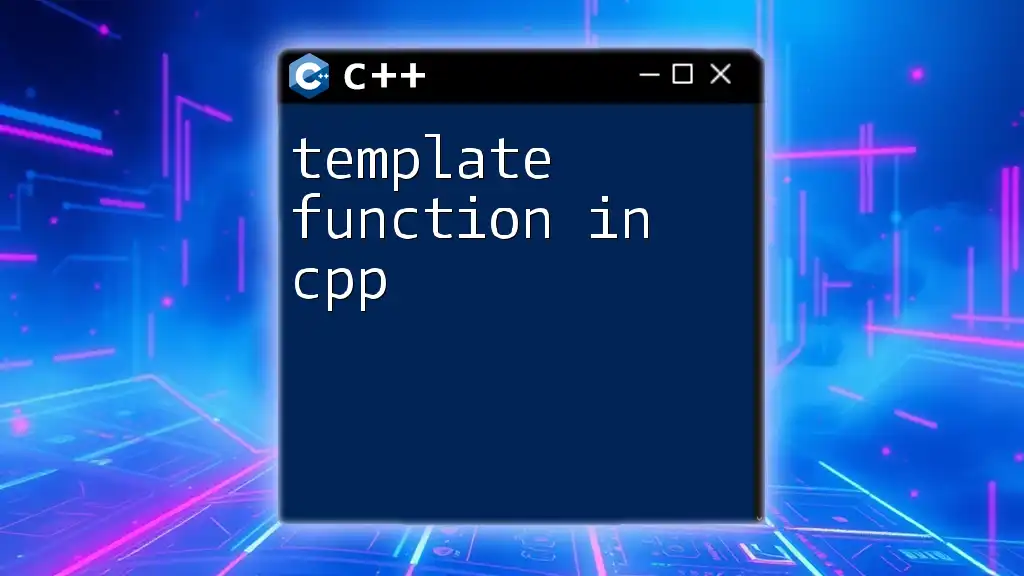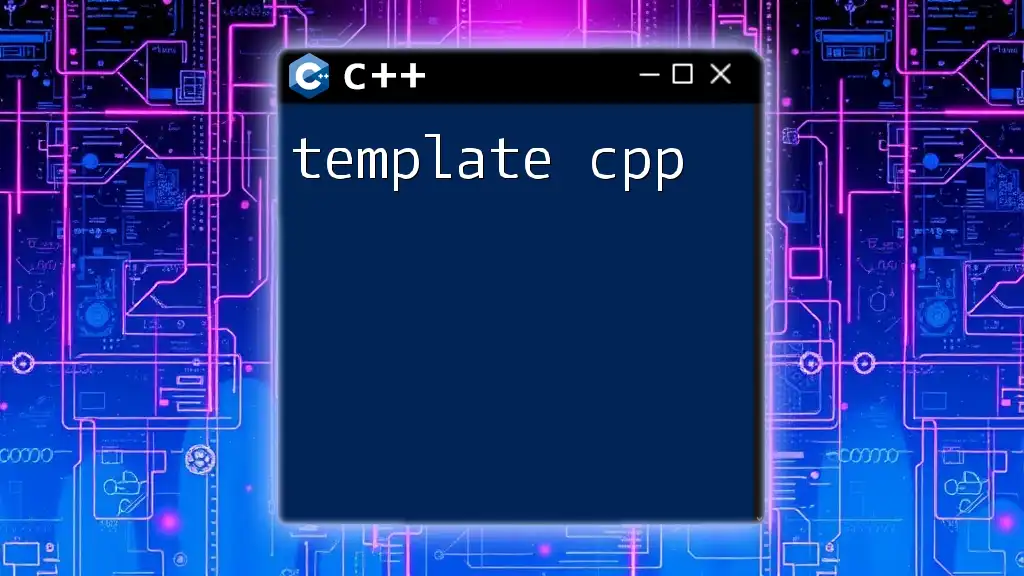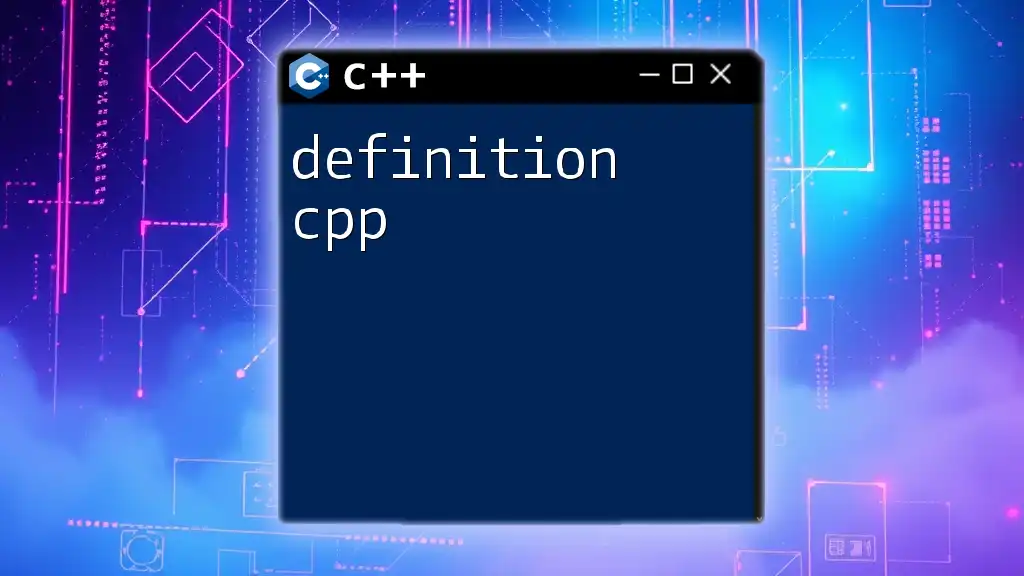Encapsulation in C++ is a fundamental object-oriented programming principle that restricts direct access to an object's data members and promotes the use of public methods for data manipulation, ensuring controlled access and safeguarding the object's integrity.
Here's a code snippet demonstrating encapsulation in C++:
#include <iostream>
using namespace std;
class BankAccount {
private:
double balance; // private data member
public:
// Constructor to initialize balance
BankAccount(double initial_balance) {
balance = initial_balance;
}
// Public method to deposit money
void deposit(double amount) {
if (amount > 0) {
balance += amount;
}
}
// Public method to get the balance
double getBalance() const {
return balance;
}
};
int main() {
BankAccount account(100.0); // Create a BankAccount object
account.deposit(50.0); // Deposit money
cout << "Current Balance: $" << account.getBalance() << endl; // Access balance
return 0;
}
Definition of Encapsulation
Encapsulation is a fundamental concept in object-oriented programming that combines data and methods that operate on that data into a single unit called a class. It allows the implementation of data hiding, ensuring that an object's internal state is shielded from direct manipulation. This adds a layer of security to the data and prevents unintended interference, which is crucial in maintaining the integrity of the system.
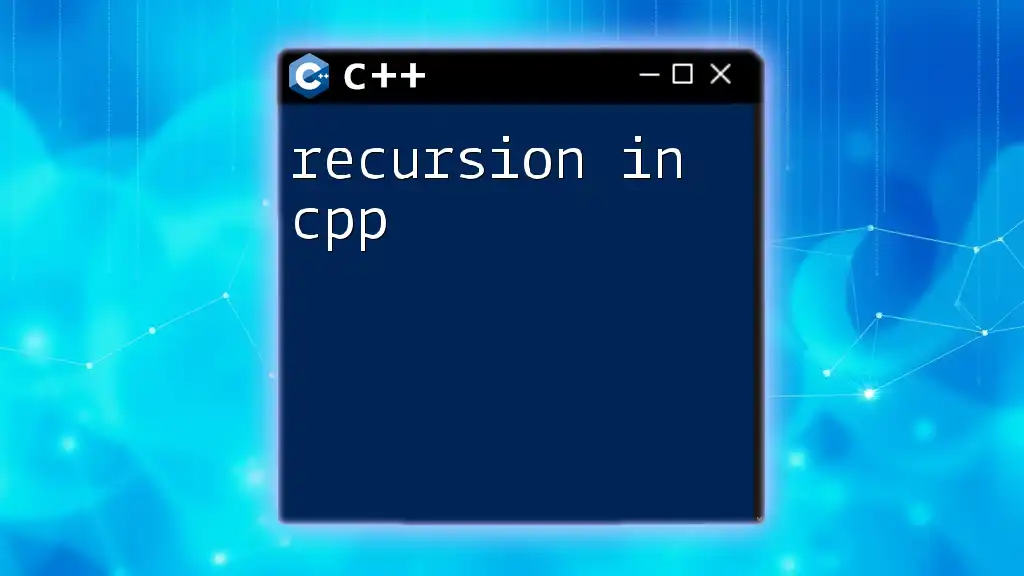
What is Encapsulation in C++?
In C++, encapsulation is achieved through the use of classes and access modifiers. By bundling data (attributes) and behaviors (methods) into classes, C++ allows you to control how the data is accessed and manipulated. The primary goal of encapsulation in C++ is to protect the object's data from external manipulation while providing a user interface via public methods to interact with the data indirectly. This is foundational to good software design, ensuring that internal states remain consistent and controlled.
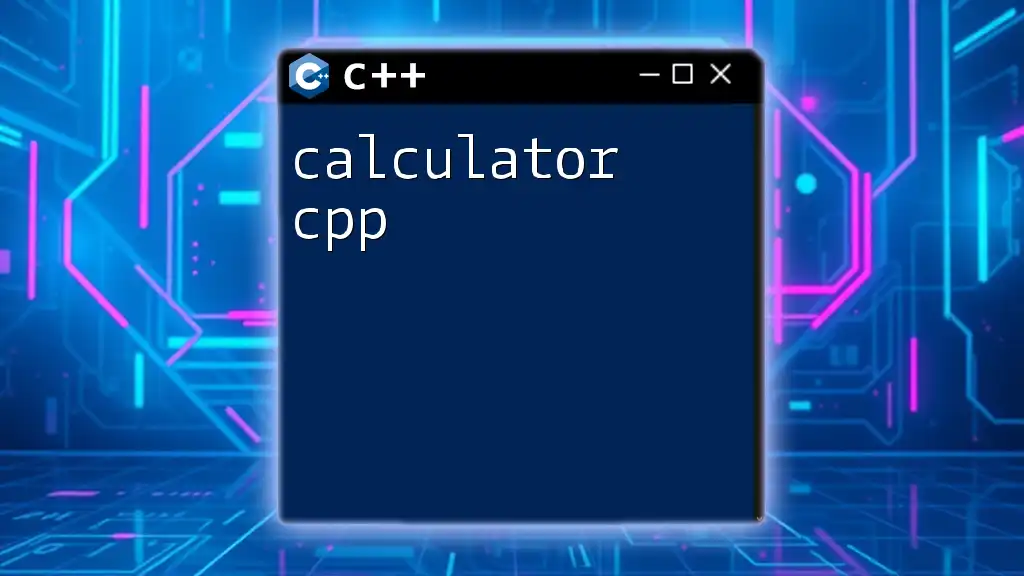
Fundamental Concepts of Encapsulation
Data Hiding
Data hiding is a core feature of encapsulation. By restricting access to the inner workings of an object, encapsulation ensures that the object's data can only be altered by its own methods. This serves multiple purposes:
- It protects the object’s state from unintended modifications.
- It promotes a clean interface that system users can interact with without needing to understand its internals.
- Data hiding supports better maintainability and minimizes the risk of bugs.
Access Modifiers in C++
Access modifiers are keywords in C++ that define the accessibility of class members. The three primary access modifiers are:
-
Public: Members declared as public can be accessed from anywhere in the program.
-
Private: Members declared as private cannot be accessed from outside the class. This is often where sensitive information is kept.
-
Protected: Similar to private, but protected members can also be accessed in derived classes.
Using these access modifiers strategically is key to effective encapsulation.
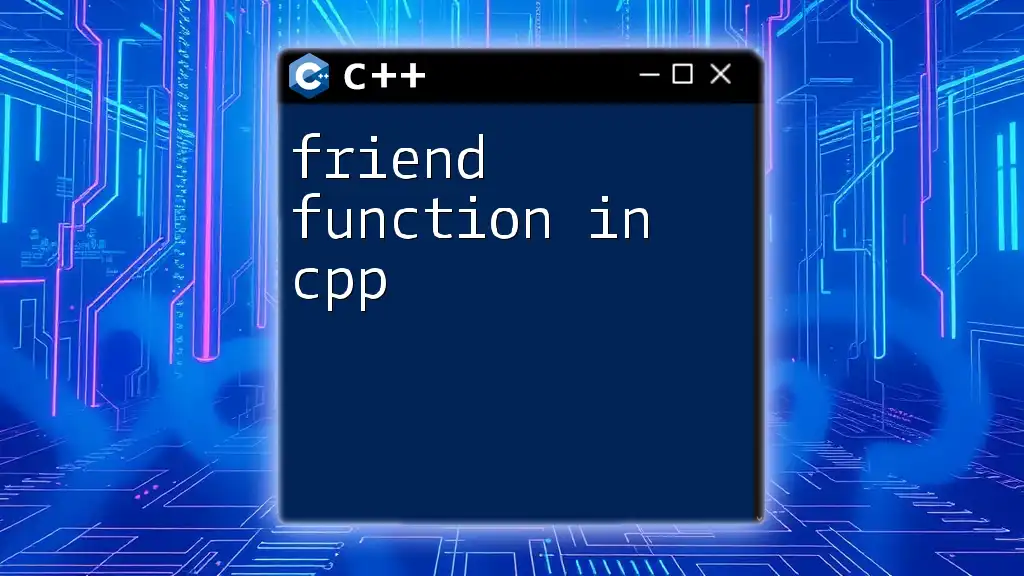
Implementing Encapsulation in C++
Creating Classes and Objects
Encapsulation in C++ starts with the creation of classes. For example, let’s define a simple `BankAccount` class:
class BankAccount {
private:
double balance; // Private data member
public:
BankAccount() { balance = 0.0; } // Constructor
};
In this definition, the `balance` variable is private, ensuring it cannot be directly accessed outside the class.
Getters and Setters
To interact with the private member, we use getter and setter methods. These methods provide a controlled interface for accessing and modifying private data:
void deposit(double amount) {
if (amount > 0) {
balance += amount; // Modify private member
}
}
double getBalance() const { // Getter method
return balance; // Access private member
}
The `deposit` function is a setter that allows changes to the `balance`, while `getBalance` is a getter that provides read access, exemplifying encapsulation in C++.
Example Code Walkthrough
Encapsulation Program in C++
Here’s a complete example demonstrating encapsulation in practice:
#include <iostream>
class BankAccount {
private:
double balance; // Private data member
public:
BankAccount() { balance = 0.0; } // Constructor
void deposit(double amount) {
if (amount > 0) {
balance += amount; // Modify private member
}
}
double getBalance() const { // Getter method
return balance; // Access private member
}
};
int main() {
BankAccount myAccount;
myAccount.deposit(100.0);
std::cout << "Current balance: " << myAccount.getBalance() << std::endl;
return 0;
}
In this example, we have a `BankAccount` class with private data members protected from external access. Changes to the `balance` are permitted only through the `deposit` method, while the `getBalance` method provides safe reading of the current balance.
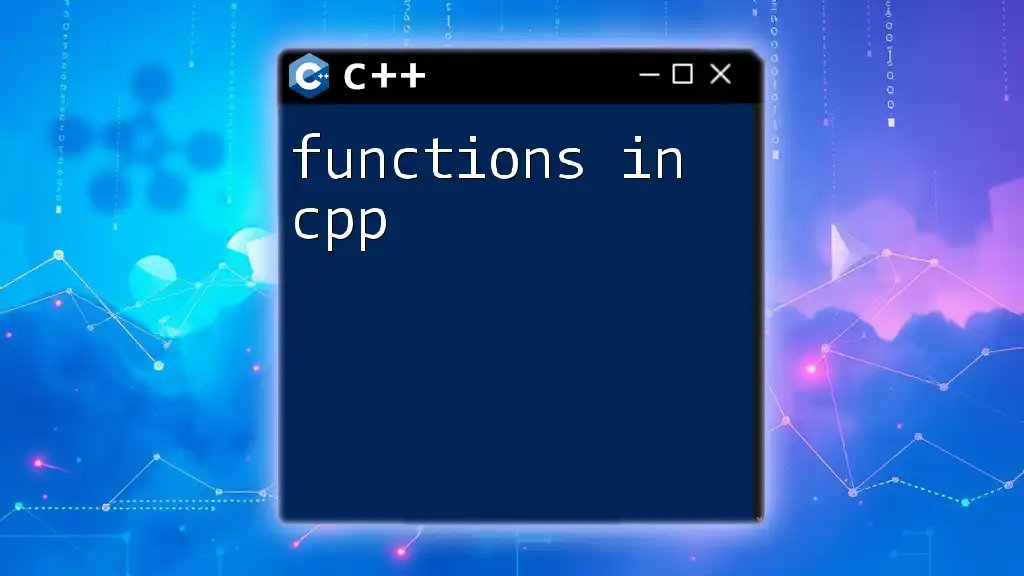
Advantages of Encapsulation
Improved Code Maintenance
Encapsulation significantly improves the maintainability of the code. When the implementation details of a class change, external code that relies on the public interface remains unaffected. This separation of concerns makes it easier to modify and extend code with minimal impact on the overall system.
Better Control over Data
Encapsulation provides developers with better control over how data is accessed and modified. By ensuring that data can be modified only through designated functions, the class can enforce valid states and prevent the introduction of errors.
Enhanced Security
Encapsulation increases security by preventing unauthorized access to sensitive data. By making class variables private, the class defines clear boundaries of access, thereby protecting critical information from outside influence.
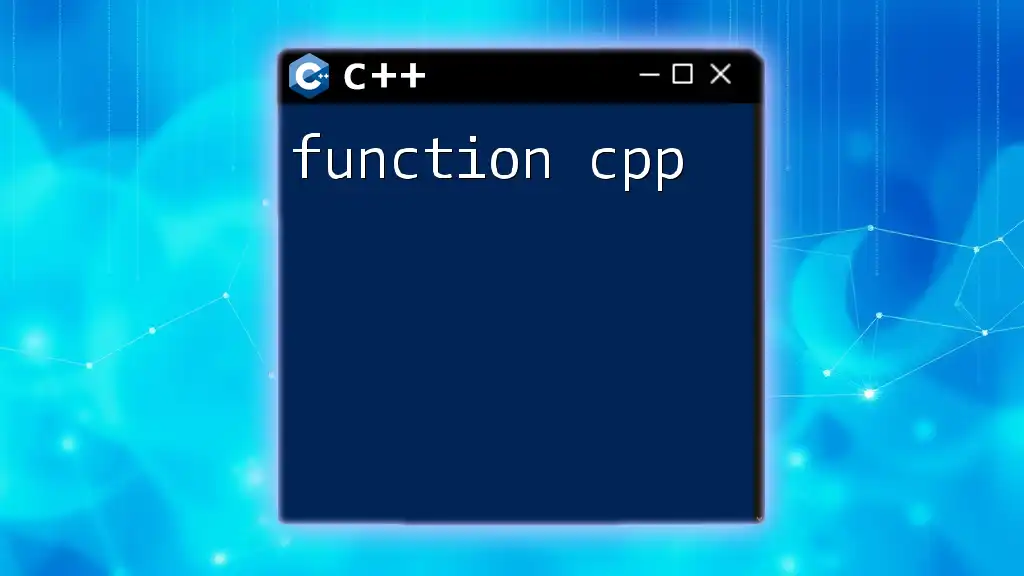
Best Practices in Encapsulation
Use of Access Specifiers
Understanding when to use public, private, and protected access specifiers is key to effective encapsulation. As a rule of thumb, use private for sensitive data and only expose what is necessary through public methods.
Creating Meaningful Getters and Setters
When designing getter and setter methods, strive for clarity and purpose. Avoid creating getters and setters for every variable; only expose those that are essential for the object's functioning.
Avoiding Excessive Use of Public Members
Be cautious of exposing too many public members. This can lead to poorly defined interfaces and increase the likelihood of incorrect usage. Instead, rely on a well-defined set of functions to govern access to the data.
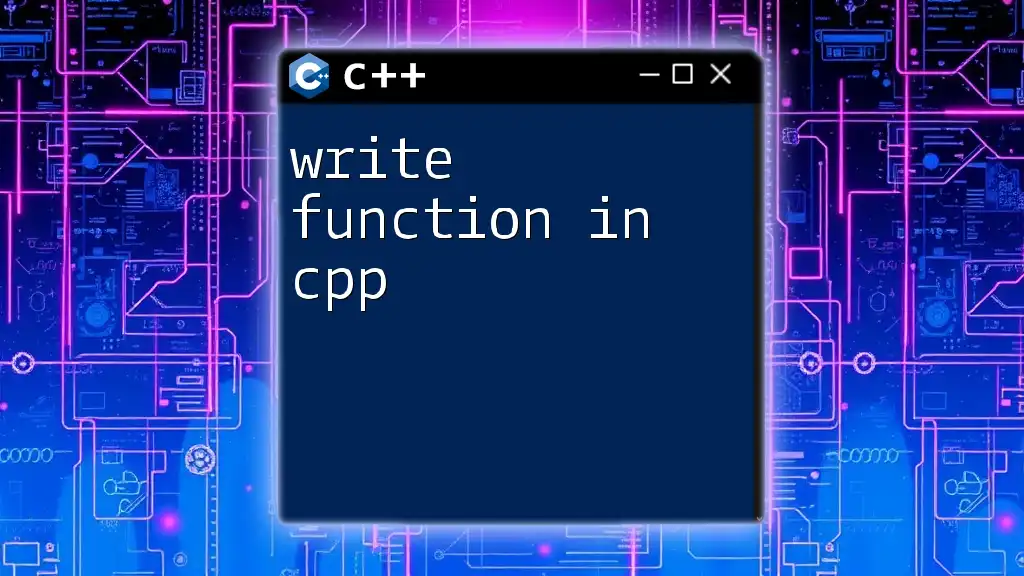
Common Misconceptions about Encapsulation
Encapsulation vs. Abstraction
While encapsulation and abstraction are related concepts, they serve different purposes. Encapsulation focuses on bundling data and methods within a class, whereas abstraction hides complex realities and exposes only the necessary parts. Both work together to improve software design but address different concerns.
Encapsulation is Only for Classes
Another misconception is that encapsulation is limited to classes only. In practice, encapsulation principles can be applied across different structures, including structs, especially when planning the design of modular and maintainable code.
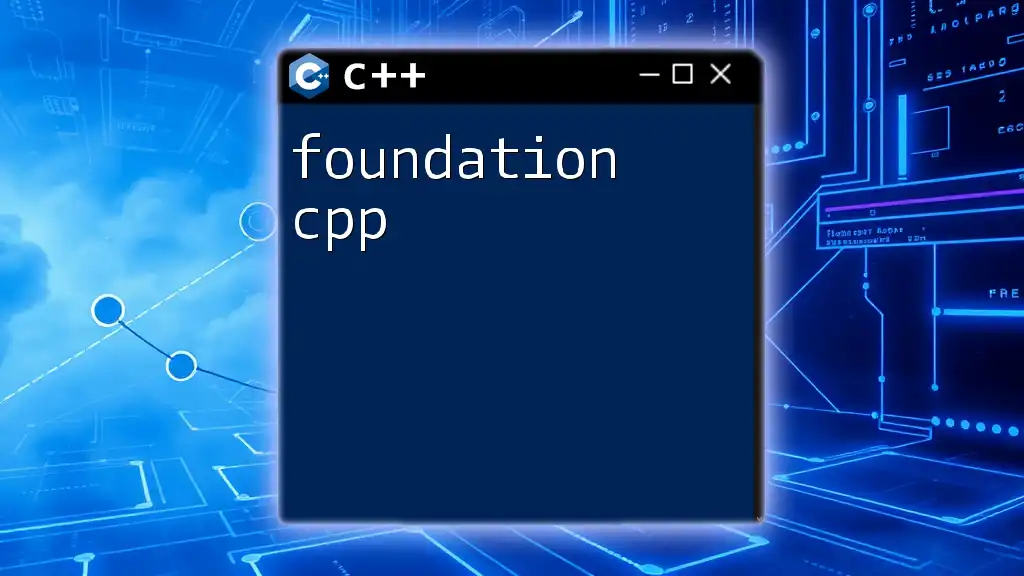
Encapsulation in Modern C++
Trends and Language Enhancements
The evolution of C++ has introduced several features that enhance encapsulation, such as:
- The introduction of smart pointers (`std::unique_ptr`, `std::shared_ptr`) that encapsulate dynamic memory management.
- New syntactic sugar for initializing class members directly within constructors.
Encapsulation in Smart Pointers
Smart pointers offer a robust way to manage resource ownership and lifetime, showcasing modern encapsulation techniques. By wrapping raw pointers, smart pointers encapsulate memory management, preventing common issues such as memory leaks and dangling pointers.
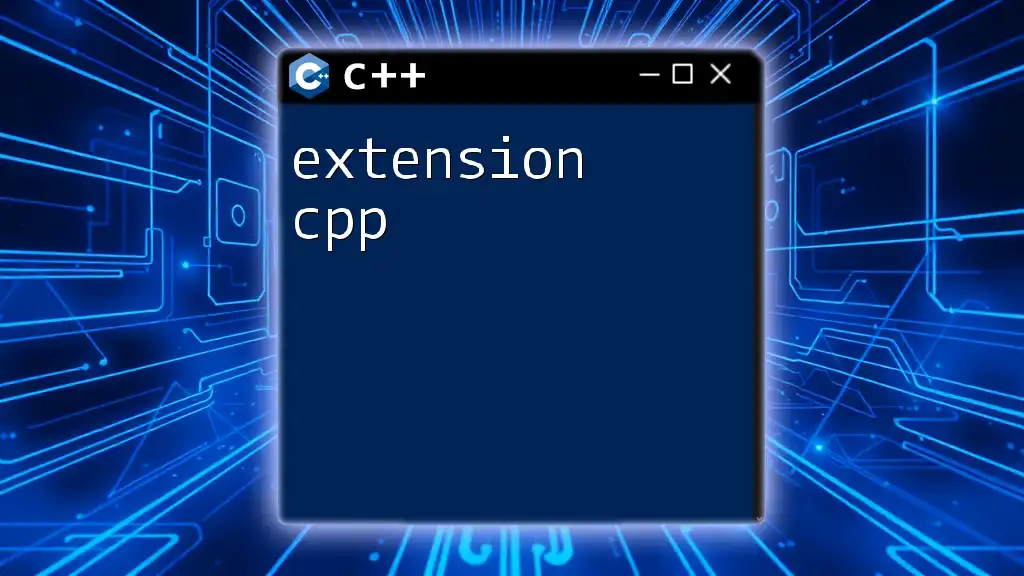
Conclusion
Encapsulation in C++ is an essential pillar of object-oriented programming, empowering developers to create robust, maintainable code. By encapsulating data within classes and exposing a controlled interface, we can protect internal states, promote better security, and facilitate easier code maintenance. As you continue your journey in C++, remember to implement these principles of encapsulation to write cleaner, more effective code.
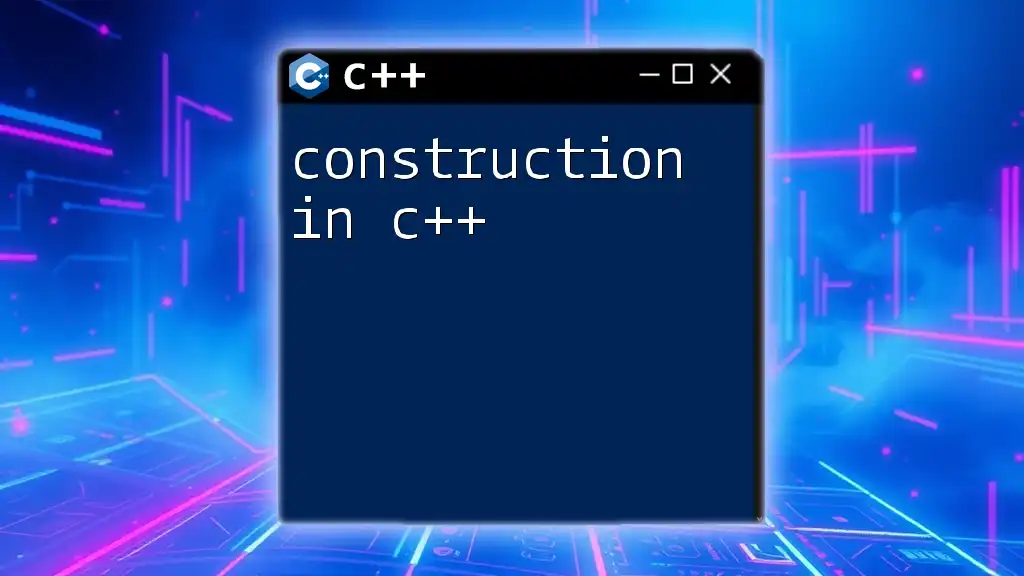
Additional Resources
Consider exploring further materials such as:
- OOP tutorials and textbooks that delve deeper into encapsulation and other concepts.
- Online coding platforms and repositories where you can access more encapsulation examples and practice through hands-on programming exercises.
By embracing encapsulation, you can elevate your C++ skills and enhance your software development practices.

